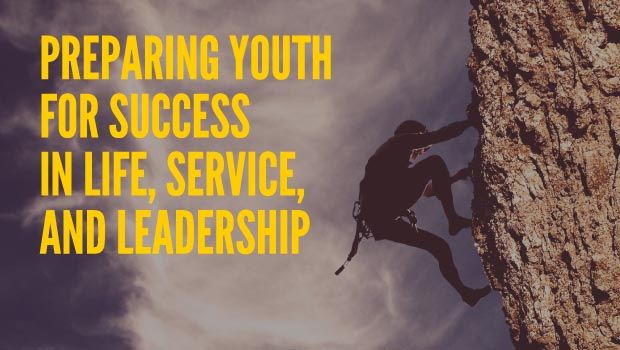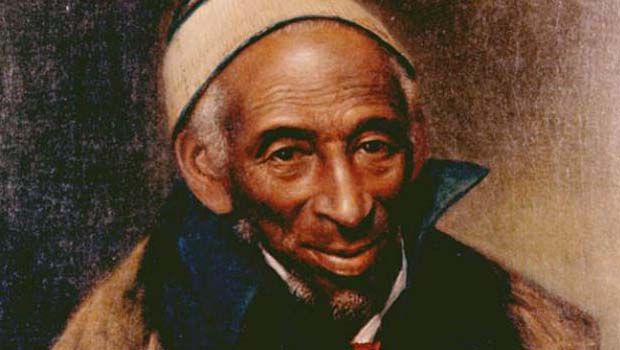Looking metaphorically at the phenomenon of the “butterfly effect,” wherein, theoretically, the flapping of a butterfly’s wings in Japan could cause a tornado in Texas, it is likewise conceivable that the humble efforts of a single youth could positively and dramatically change the world. Despite this plausible reality, oftentimes we hear youth saying, “I’m young, what can I do?” Instead, perhaps, they should say,” I’m young—with the help of Allah (SWT)—what can’t I do?”
We must provide constructive programs and outlets for youth to come together, discuss common struggles and challenges, and through specific projects, make a positive contribution to their communities
It appears that our youth are not aware of the substantial role played by young people in Islamic history. Prophet lbrahim, for example, was a young man who challenged the disbelievers and destroyed their idols; at the age of 10, Ali ibn Abi Talib was the first male to accept Islam; Umair ibn Abi Waqqas joined the Battle of Badr around the age of 15; and Aisha (RA), who became the wife of the Prophet, narrated many hadith and was a leader in her own right during her youth.
Devaluing the Potential Contributions of Youth
It’s not only youth that underestimate themselves, but community leaders underestimate them as well. Muslim community leaders must realize the vital importance of youth and view them as valuable resources, rather than spoiled youngsters with little to offer, requiring video games and constant entertainment/stimuli to hold their interest. In fact, youth is the
stage of life during which individuals are most enthusiastic, energetic, creative, open to learning, and physically strong. Allah (SWT) says in the Quran, “Allah is He who created you of weakness, then He appointed after weakness strength, then after strength He appointed weakness and grey hair…” (Quran 30:54). It is in the best interest of our communities to re-evaluate the strength and value of our youth, contemplate the substantial contributions they can make, and do our best to prepare them for success, service, and leadership.
Mass Media Seek to Indoctrinate Youth
The general society unquestionably values youth as a commodity. In fact, society elites and predatory marketers and advertisers recognize the intrinsic value of youth and spend a great deal of time and money to manipulate and control their behavior and shape their identity.
Youth are not just the future; they can, today, be the endowment of our commitment and their own, benefiting and improving their own lives and that of their families, but also that of ummah and society
In an article, “How Disney Magic and the Corporate Media Shape Youth Identity in the Digital Age,” author Henry J. Giroux writes, “Youth are now assaulted by a never-ending proliferation of marketing strategies that colonize their consciousness and daily lives…[i]n what has become the most ‘consumer-oriented society in the world,’…. youth now inhabit a cultural landscape in which, increasingly, they can only recognize themselves in terms preferred by the market. Multi-billion-dollar media corporations, with a commanding role over commodity markets as well as support from the highest reaches of government, have become the primary educational and cultural force in shaping, if not hijacking, how youth define their interests, values and relations to others.” For this reason, community leaders and parents need to be active players in this struggle to influence the hearts and minds of youth.
Exemplary Youth Inspire Peers to Strengthen Iman
Without exemplary youth providing a good example and positive peer influence, Muslim youth are left hanging in the balance. Popular culture with all its many vices are a continuous temptation and distraction for youth, and Muslim youth do not live in a vacuum. If they are not provided positive Islamic experience and acculturation, they will be susceptible to any and all negative influences from non-Muslim friends, popular culture, mass media, and profit-motivated advertisers. Youth leaders, in conjunction with more mature individuals in their communities, are needed to reach out to the youth and provide constructive programs and outlets for youth to come together, discuss common struggles and challenges, and through specific projects, make a positive contribution to their communities. Also, within this climate of Islamophobia, youth need, more than ever, the inner strength that comes from adequate Islamic knowledge and personal confidence. They can then stand tall against those in society who feel justified in hating and criticizing them because of their association with Islam.
Youth Disenfranchised from Our Communities
Obviously, youth who are disenfranchised and disconnected from the masjid and Islamic community run a greater risk of becoming wandering invisible Muslims who discard their Islamic practice and potentially stop identifying as Muslim altogether. Muslim youth who are not at the masjid are also not in some empty room staring at the walls. No, they are busy somewhere doing something.
The reasons for youth being absent from the masjids vary. A few years ago, at a sisters’ halaqa, I met some new sisters and began talking about the community needs, etc. During the conversation, one sister mentioned that there were some Muslim youth and adults who were attending churches because they “provided better programs and activities.” I thought I had “heard everything,” but this revelation was unexpected and, unfortunately, true. If a masjid becomes merely a place to hold the five daily prayers and jumah, then it really is not providing the essential services needed to sustain a healthy, vibrant community.
Another reason youth don’t regularly visit the masjids is because they don’t feel they are stakeholders and haven’t been empowered to make a significant contribution. Youth have a lot to offer their communities. It is time for masjid boards to show confidence in their youth, invite the older youth and young adults to join the masjid board, and empower them to reach out to other youth and develop programs to benefit the youth and the community at large.
In order to attract youth to the masjid, activities must be provided that are interesting and stimulating to them. Comprehensive programs for them are needed and can be developed gradually. However, initially attracting them can be accomplished by having youth organize and advertise youth sports tournaments with pizza parties and ice cream socials. After that, the youth themselves can recommend other programs that interest them and keep them active in the masjid.
“It takes a Village”— Parent and Community Partnership
Preparing youth to succeed in their lives, to contribute to society, and to take on leadership responsibilities, requires that they have a deeper understanding of Islam. After learning the basic beliefs, the five pillars, surahs from the Quran, a collection of hadith, and other requisite Islamic knowledge — they should then attempt to understand some deeper Islamic concepts. A deeper understanding of Islam is a blessing from Allah (SWT). The Prophet (pbuh) said, “When Allah wishes good for a person, He causes him to understand the religion” (Bukhari).
Parents and communities should form a partnership to provide children and youth the requisite Islamic knowledge necessary to become dynamic and successful members of the community and society. The partnership includes combining resources and disseminating Islamic information and training through full time Islamic schools, Sunday schools, masjid halaqas for youth, as well as workshops, visiting lecturers, and parent-guided educational activities. Ultimately it is the parent’s role to manage the logistics of providing their children and youth knowledge and Islamic leadership training —but they can utilize both home resources and community resources to obtain the desired outcomes. Knowledge is the foundation of religious commitment, and central to Islamic success, and for leadership. Whether it is spiritual or academic, it is essential, and Allah (SWT) will Insha’Allah make the knowledge sought attainable. The prophet (pbuh) said, “Whoever treads a path in seeking knowledge, Allah will make easy for him the path to Paradise” (Al-Tirmidhi).
Helping Youth Understand Purpose and Meaning of Life
Youth need to strive to better understand the purpose and meaning of life and how that relates to living as a Muslim and seeking to attain Paradise. Allah (SWT) tells us, “I created the jinn and humankind that they might worship Me” (Quran 51:56). Likewise, youth should be guided to contemplate the “test” of life. Allah (SWT) has taught that the creation of the heavens and the earth and of life and death is to test mankind. Allah (SWT) says, “And He it is Who has created the heavens and the earth in six Days and His Throne was over the water, that He might try which of you is the best in conduct. But if you were to say to them, ‘You shall indeed be raised up after death,’ those who disbelieve would be sure to say, ‘This is nothing but obvious magic.’” (Quran 11:7). Along the same lines, youth should also contemplate the meaning of true success in this world and realize that success is not measured by material possessions but by one’s good deeds and earning the pleasure of Allah (SWT). The deep study of Islam is a life-long endeavor, and both parents and the community should motivate youth to continuously expand their knowledge and understanding.
Helping Youth Understand the Importance of Time
Youth should realize time is one of the most precious resources on earth — and it is fleeting. A person can have all their worldly possessions taken from them, and spend many years working hard to replace what they lost. But time is one precious resource that can never be replaced. Every second that ticks away is gone forever. Surah Al-Asr should be studied and understood as it relates to life and the value of time. Allah (SWT) says, “By time, verily man is in loss, except such as have faith, and do righteous deeds, and [join together] in the mutual teaching of truth, and of patience and constancy” (Quran 103:1-3).
There are certain major time wasters that should be cautioned against and avoided in order to better value time. Activities like spending hour after hour watching TV, playing video games, or being glued to a smart phone on social media can be detrimental, if not done in moderation and after other, more important activities have been fulfilled. Let’s say some youth spent six hours a day combining TV, video games, and social media. Doing the math, we calculate that they are spending 2,190 hours or nearly three full months over the period of a year. This is a startling figure. There are so many better ways to spend one’s time which could truly bring benefit such as reading and memorizing Quran, attending a halaqa, participating in sports-centered recreational activities with fellow Muslims, cleaning the masjid, and studying and increasing one’s knowledge. The Prophet (pbuh) has said, “Take advantage of five matters before five other matters: your youth before you become old; your health before you fall sick; your wealth before you become poor; your free time before you become busy; and your life, before your death” (Al Hakim and Musnad Ahmad).
Helping Youth Prepare Academically and Intellectually
Academics are an important part of training youth, and striving for excellence is one of the qualities of a good Muslim, contributing member of society, and leader. With regard to academics, youth should be life-long learners and always strive for excellence in their studies. They should be conscientious towards their school work, and when necessary, seek out the help of tutors to help them master challenging subject matter. By being an exemplary student, a Muslim improves the image of Muslims in society, and that is a form of indirect dawah. Regardless of whether they attend an Islamic school, public school, or college, they should have good character and lead by example. In addition, if students are focusing on beneficial activities like studying in their free time, then they should have no trouble excelling in school and becoming adequately prepared for any field of employment. This spirit of striving for excellence is a practice that is essential to all personal endeavors, family life, career, civic participation, and, of course, religious practice.
Helping Youth Prepare Physically
Overall heath is an important aspect of helping youth prepare for a successful life, for dedication to activism and contribution, and for leadership. The Prophet (pbuh) encouraged certain physical fitness activities like swimming, archery, and horseback riding. So in general, a variety of sports and fitness activities including joining a sports team and regular exercise could be beneficial in keeping oneself healthy and active. A highly recommended activity conducted by some Muslim communities is organizing children and youth competitive flag football and soccer leagues which is beneficial both socially and physically. In addition, it is important to teach youth to eat healthy from a young age. If a child or youth has a weight problem, then parents can take a more active role by not bringing unhealthy foods into the home, and not only modeling and encouraging healthy eating, but also providing an adequate amount of physical fitness activities for their child or youth.
Helping Youth Choose Friends Wisely and Practice Kindness and Inclusiveness
Peer pressure is very powerful, and negative peer pressure can lead our youth down the wrong paths. The prophet (pbuh) has said, “The comparison of a good friend and a bad friend is like a perfume seller and a blacksmith. The perfume seller will give you the gift of perfume or you can enjoy its fragrance. The blacksmith will either burn your clothes, or you may be exposed to his bad smell” (Bukhari and Muslim). The best of youth are leaders, not followers, and they are very careful of the company they keep. The Prophet (pbuh) was asked, “Which of our companions are best?” He replied, “One whose appearance reminds you of Allah, and whose speech increases you in knowledge, and whose actions remind you of the hereafter.”
In addition, youth should understand the importance of inclusiveness and kindness towards all others including those who are new in the community or of different races or backgrounds. Youth should also be reminded to offer salaams, especially to those who are new, and find ways to focus on similarities rather than differences with those whom they are unfamiliar.
Helping Youth Prepare for Service and Activism
The best way to prepare our youth for service and activism is to, ourselves, be committed to service and activism. This starts with a frequent presence at the masjid, conveying that the masjid is our second home. We set the example by always looking for ways to improve things, to organize, to keep the masjid clean. And we approach this with an attitude of taking initiative, not waiting for someone to ask us to do something, but doing so for the sake of Allah (SWT).
Being balanced and committed Muslims who not only serve the Muslim community, but the greater community at large, helps prepare our youth, through example, for service and activism. We have to engage with the greater community and strive to include our youth in these activities, like volunteering at soup kitchens, visiting with seniors at senior citizen homes, and participating in dawah activities to convey better understanding of Islam to the general public.
Helping Youth Realize that Their Best Role Model is Prophet Muhammad (p)
It is human nature to be enchanted with heroes and winners. The unfortunate reality is that some Muslim youth know more about the lives of sports stars and celebrities than our Prophet Muhammad (pbuh). We have to help our youth realize that there is no better role model than Prophet Muhammad (pbuh). Our Prophet was a mercy for humankind, and the best example of human maturity, fairness, caring, and spiritual success; and his message and example is available for posterity.
By doing all we can to help our youth prepare for success, for service, and for leadership, we fulfill our responsibilities as parents and active community members. Youth are not just the future; they can, today, be the endowment of our commitment and their own, benefiting and improving their own lives and that of their families, but also that of their communities, the ummah, and society at large.





